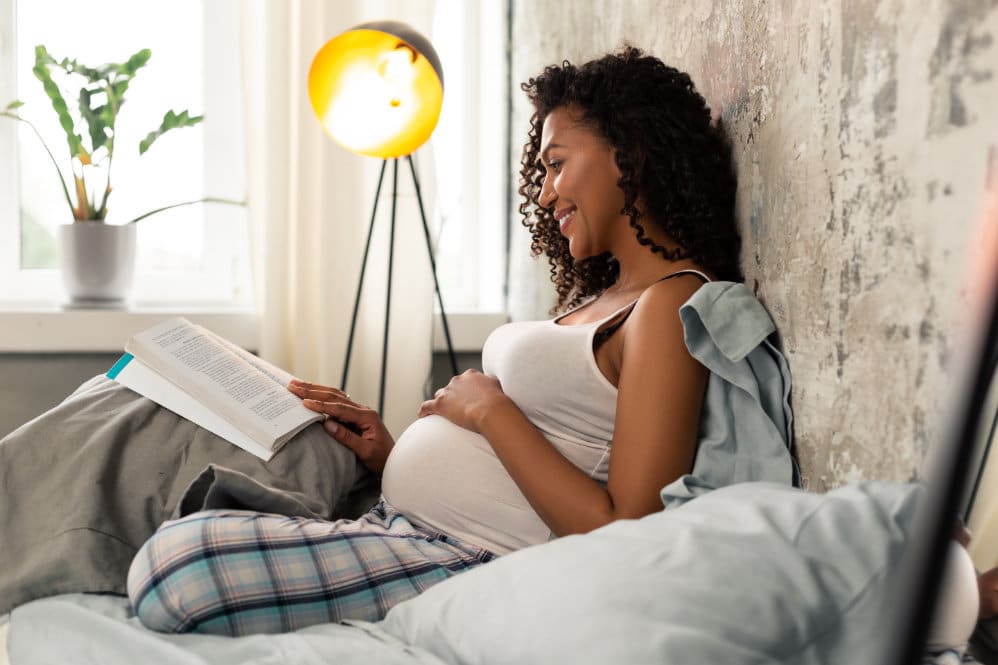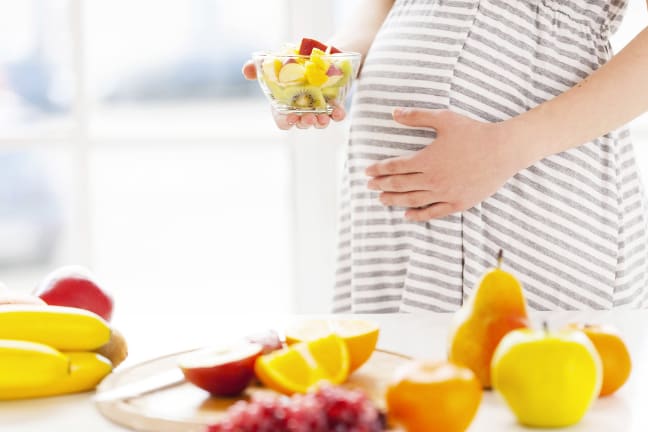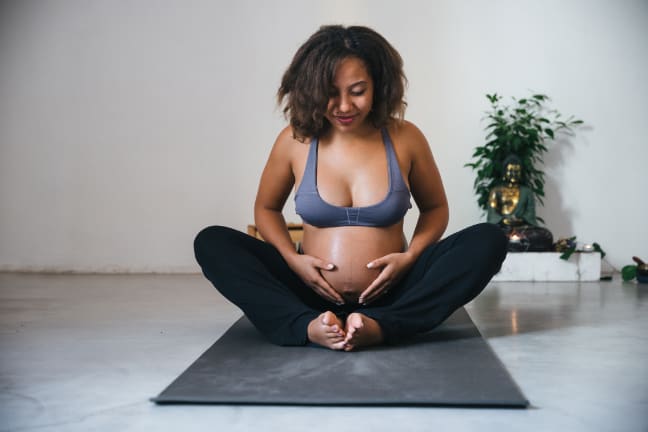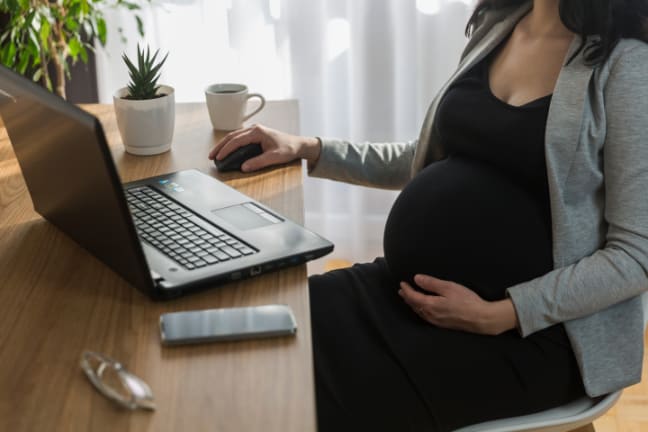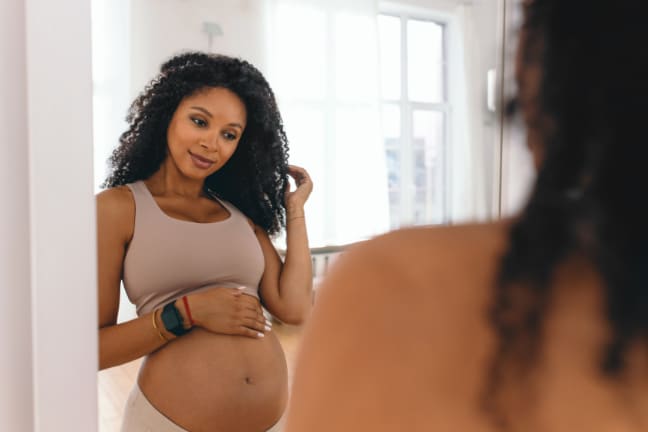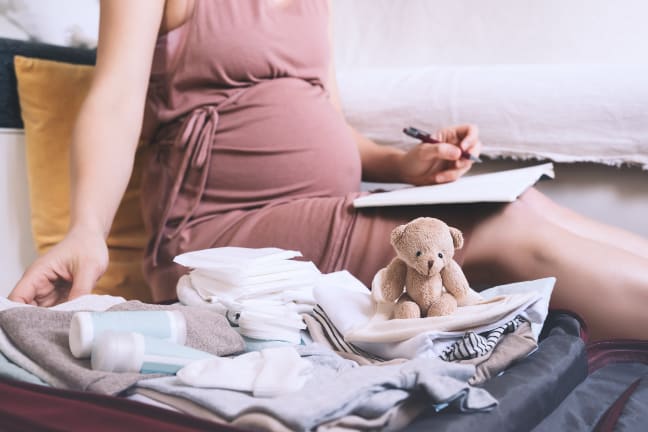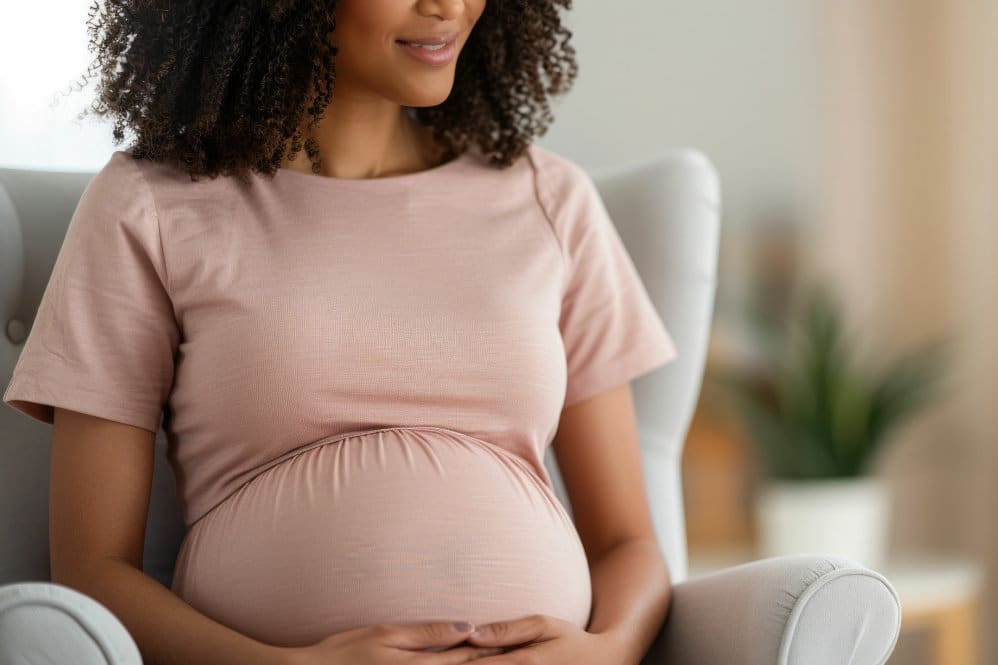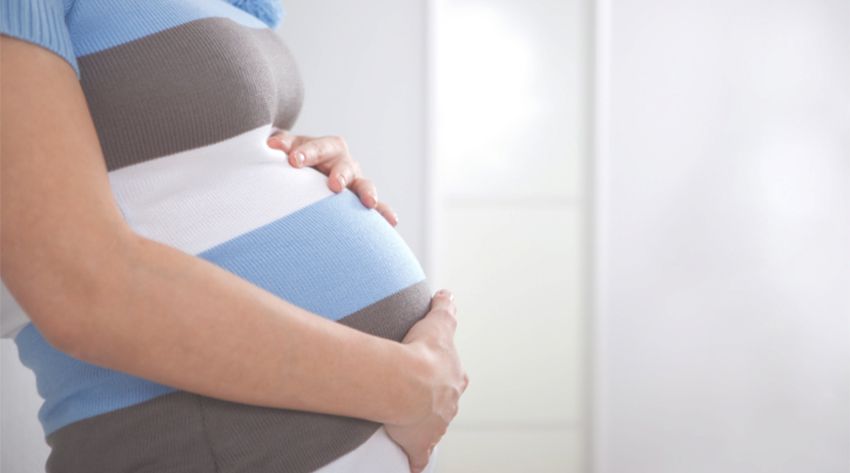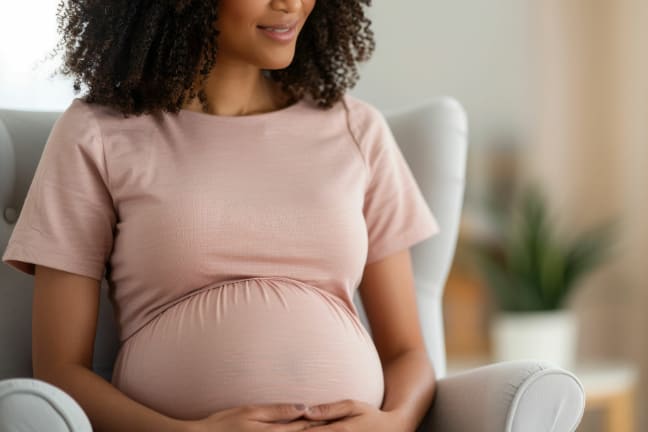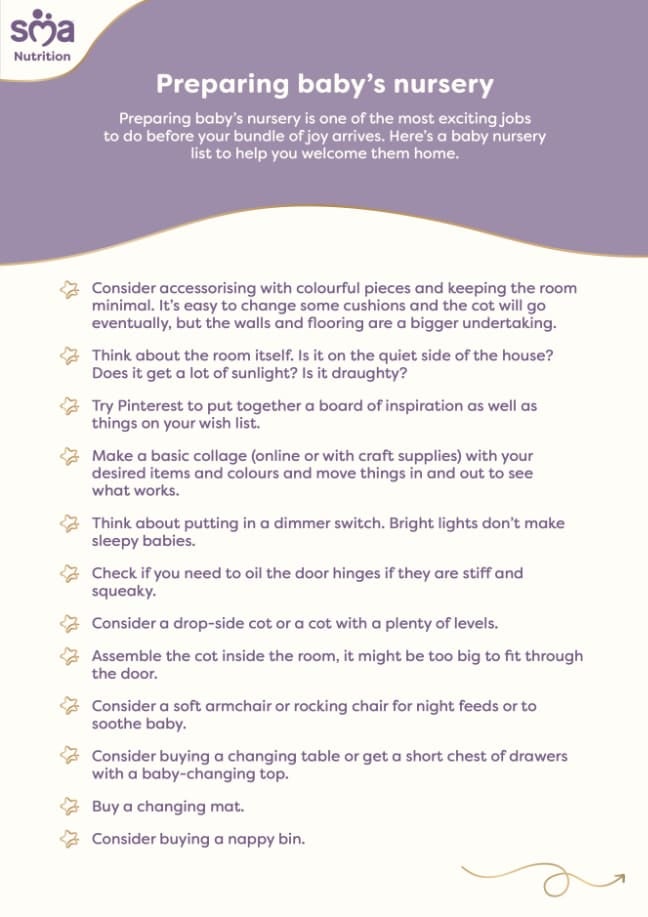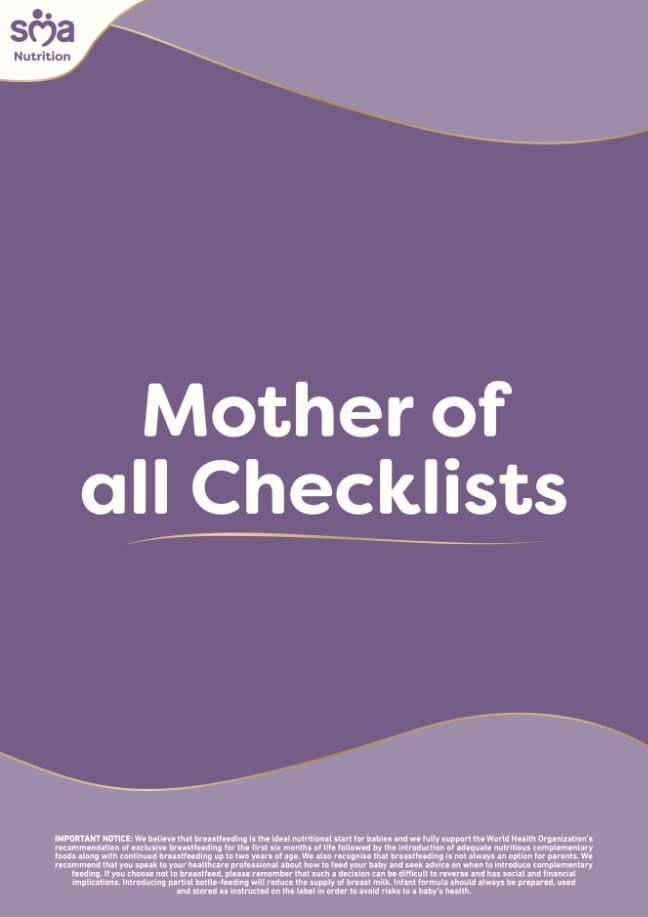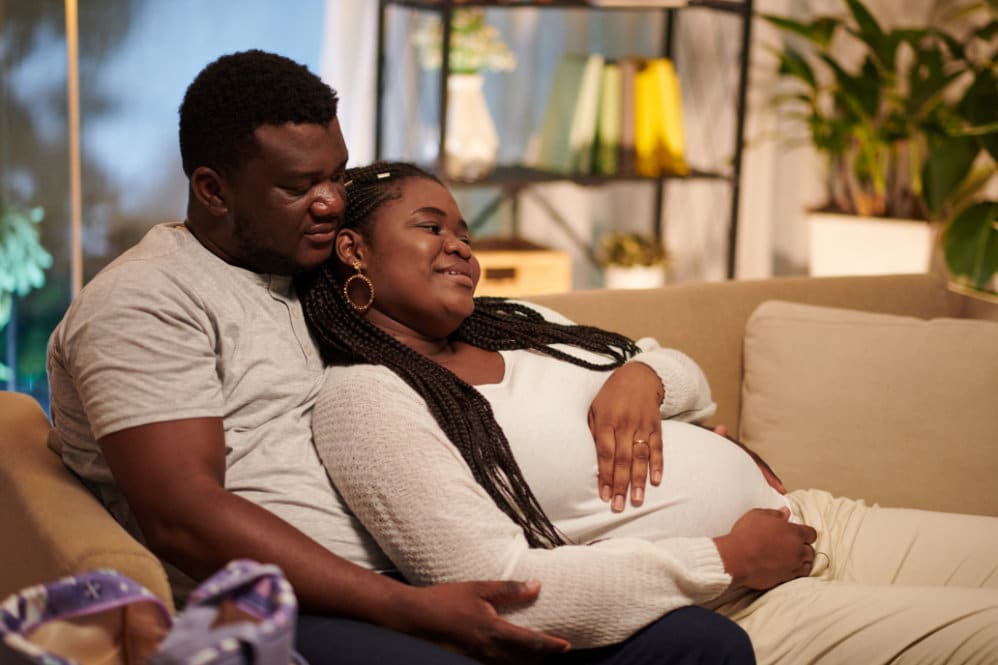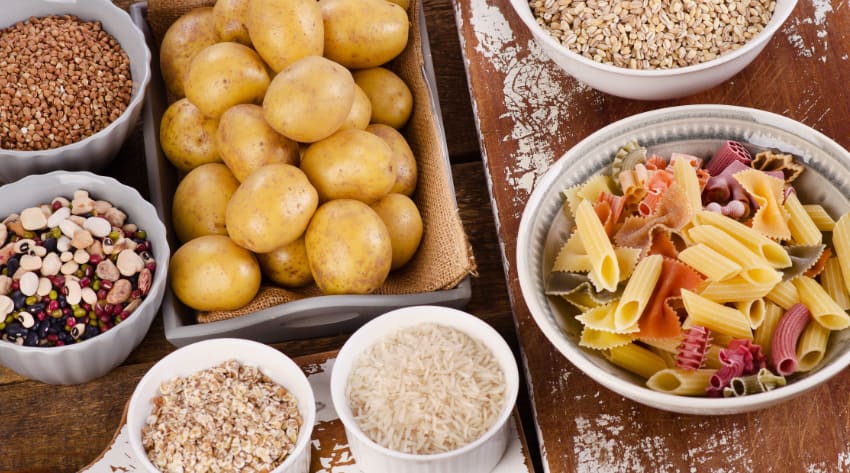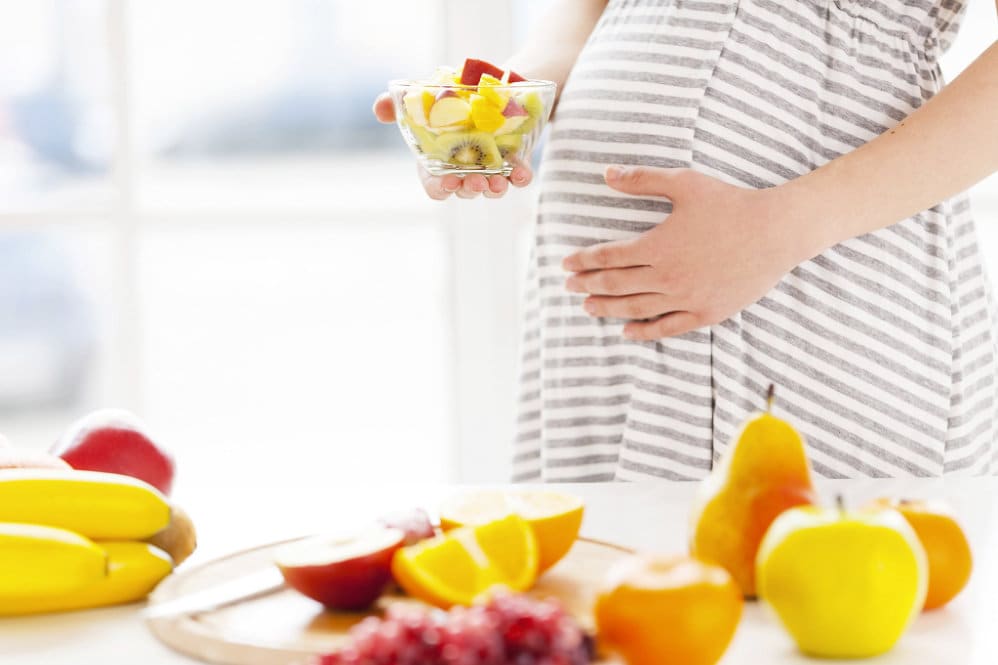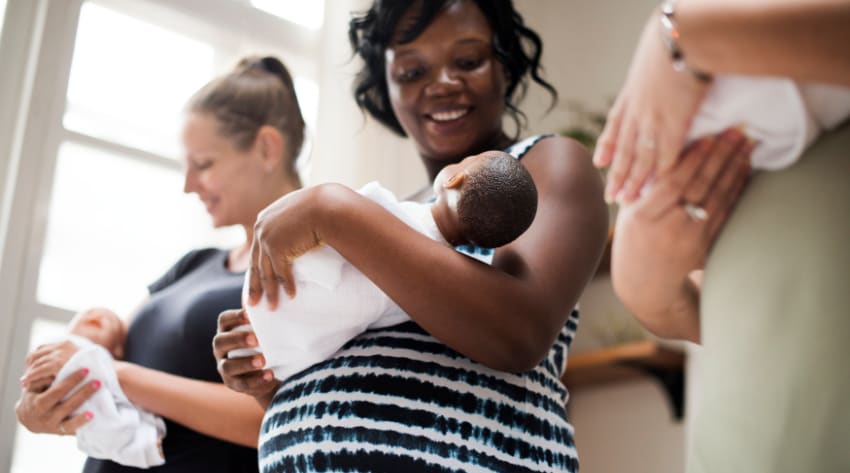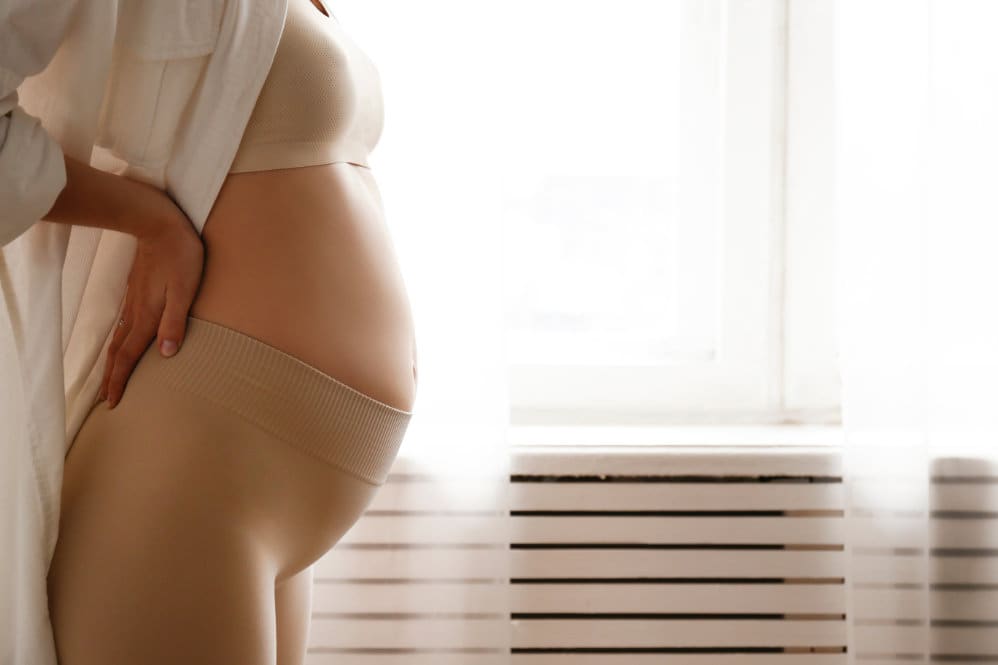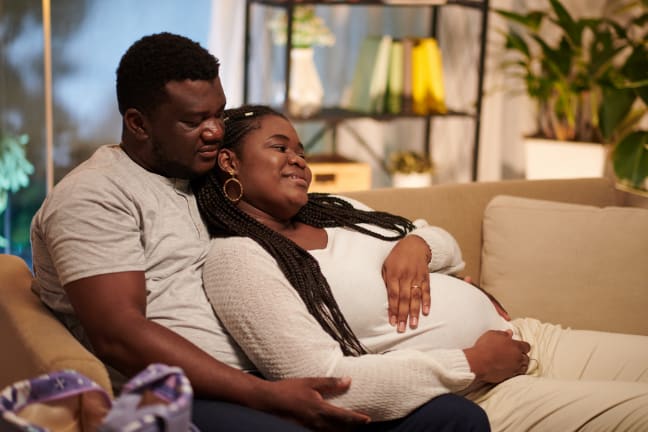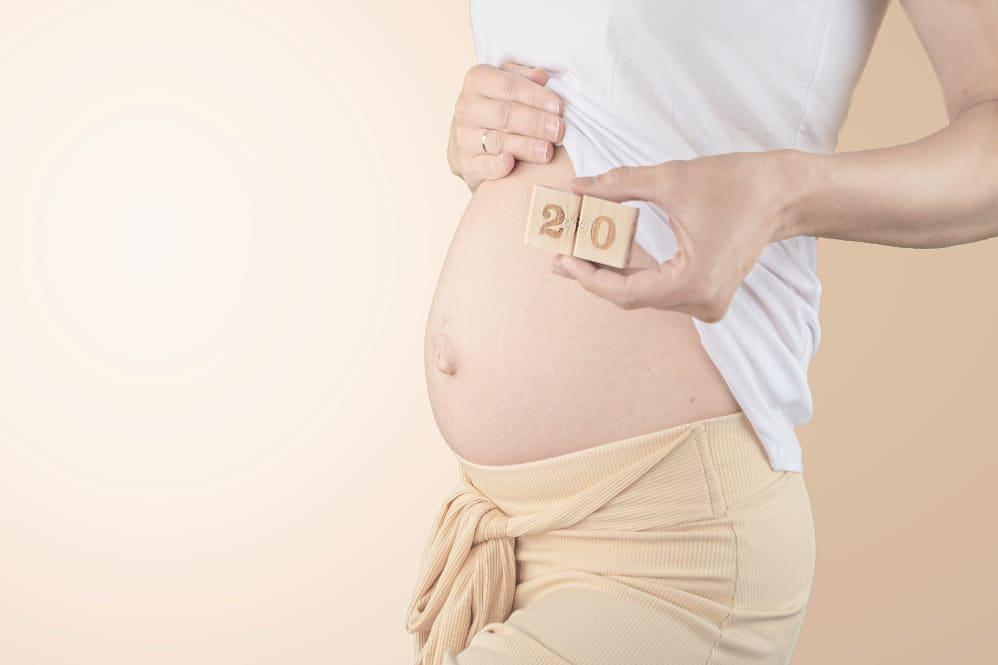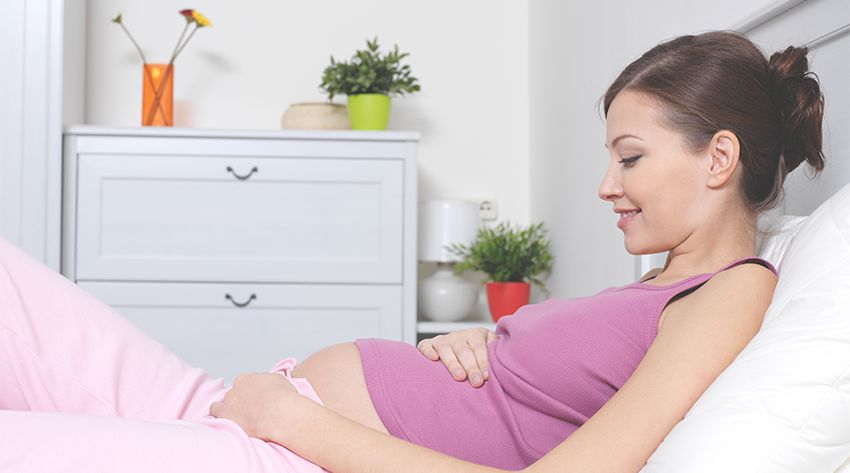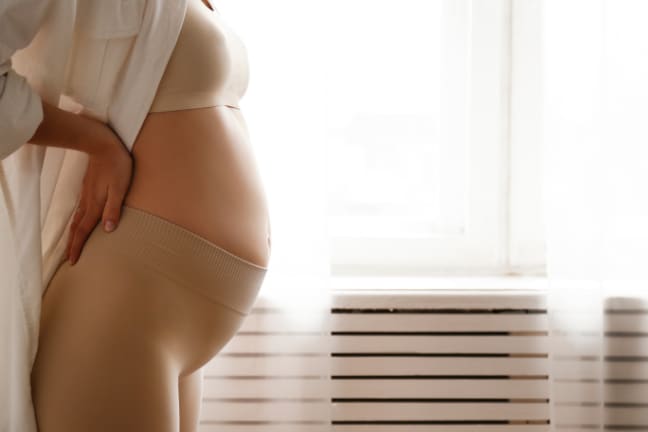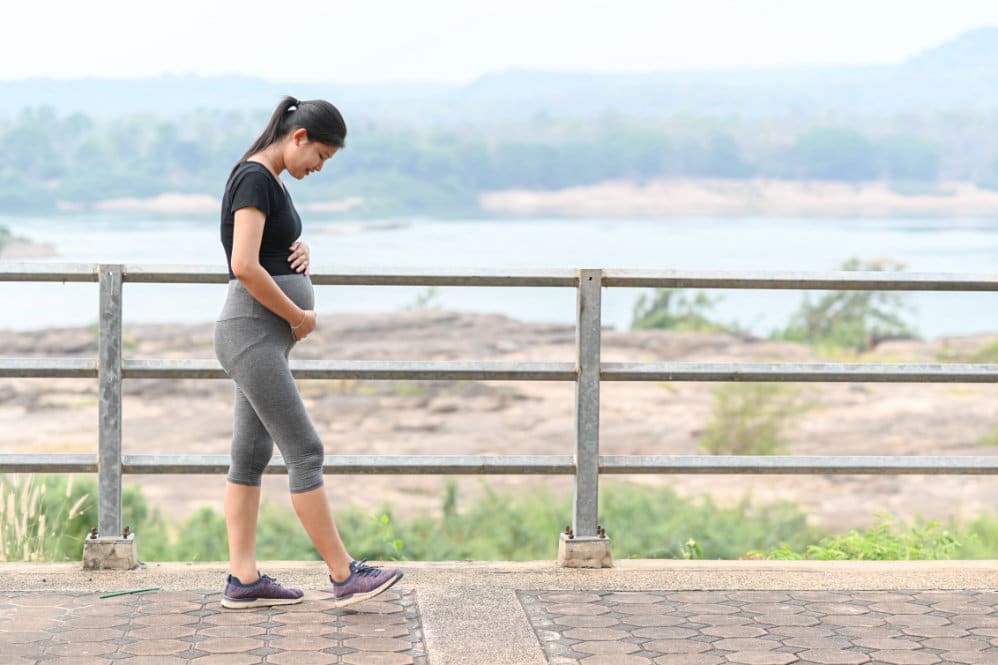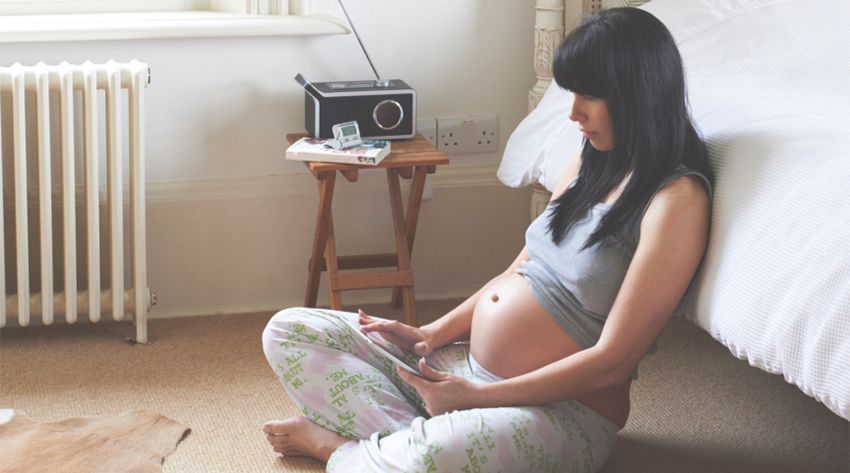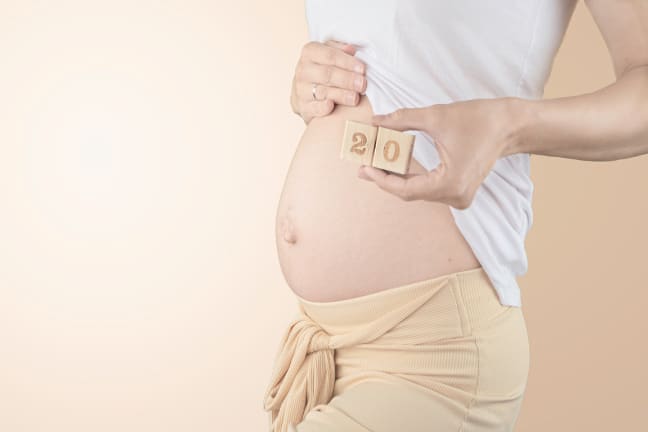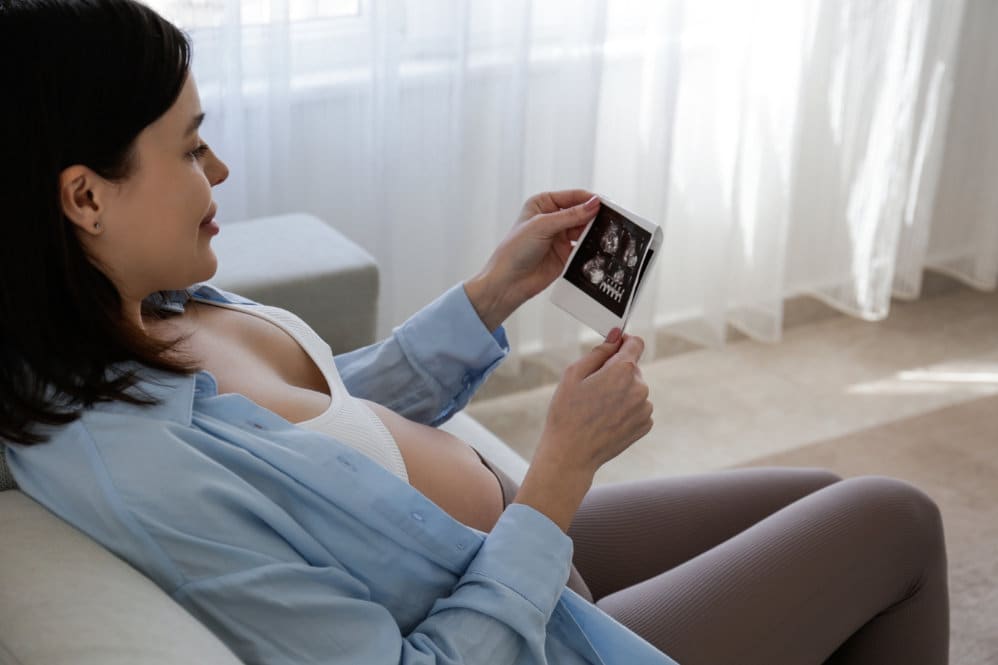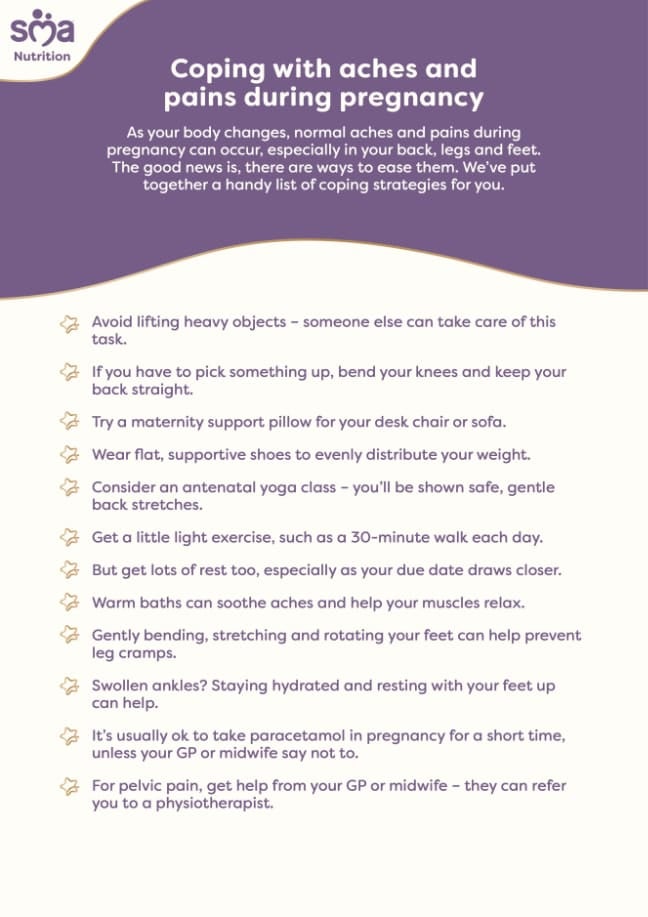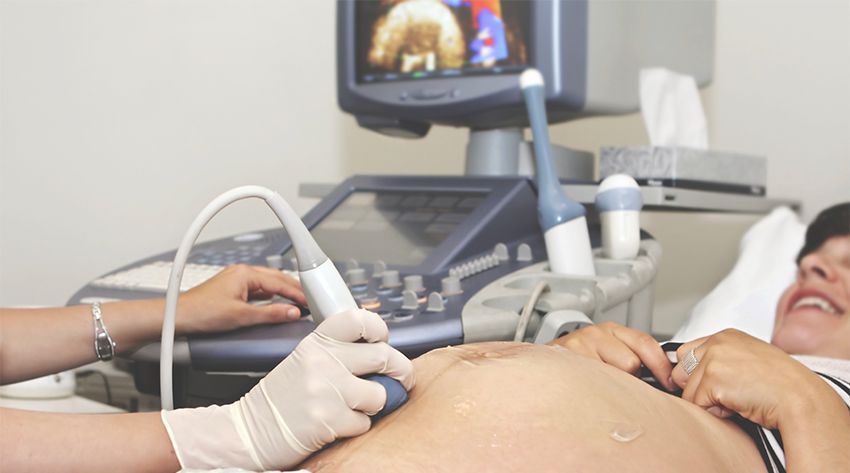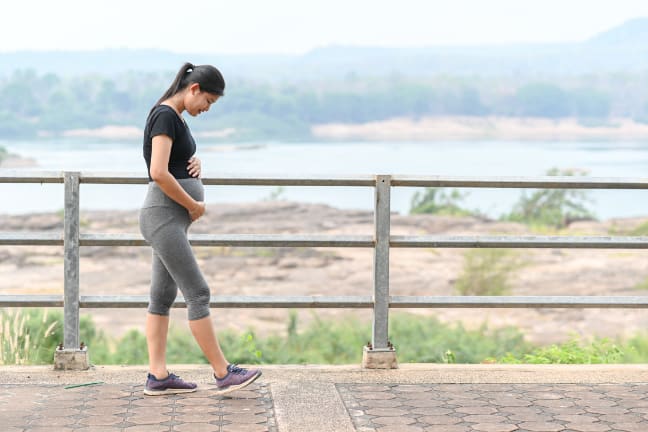Introduction
Your baby is getting chubbier as they start to store baby fat under their skin. Trouble sleeping? Read our top tips to get a better night’s sleep. If leg cramps are a pain (pun intended) we’ve got you covered, with tips on prevention. Read more on what to expect at 26 weeks pregnant.
What happens at 26 weeks pregnant?
Your baby at 26 weeks pregnant is now about 35 cm long, the size of a small marrow. But your darling little marrow won’t stay little for long. That’s because their body is getting chubbier as they gradually store baby fat under their skin in preparation for life in the outside world.
Hair, nails and lashes are growing and baby’s able to open their eyes. Although it’s a bit dark in there they can detect bright lights from outside. Baby’s grasping reflex is now developed enough for them to hold onto the umbilical cord, sometimes pulling on it. Don’t worry though, it won’t hurt, in fact it’s harmless.
What happens to your body at 26 weeks pregnant?
You’ve had a long day carrying your growing baby around, but just as you’re ready for bed, guess who decides to wake up and party? During the day your walking has rocked baby to sleep. Now you’ve stopped rocking, baby’s started cartwheeling!
The good news is your baby will sleep 20 hours a day, so the trick is to get quality sleep during pregnancy when you can. Here’s a few tricks to help:
-
Invest in a maternity pillow – they’re worth every penny
-
Try and limit the amount of caffeinated drinks and fizzy drinks you have in a day
-
30 minutes gentle exercise every day can help
-
Switch off that screen at least an hour before bed
-
Sleep on your side with a cushion between your knees, not your back when pregnant- the weight of baby can put pressure on your main veins
-
White noise apps can lull you into sleep in no time
Discover more sleep tips.
What to eat at 26 weeks pregnant?
Just when you thought you’d got through every pregnancy symptom there is, along come the pregnancy leg cramps. These often happen in the second or third trimester and usually hit at night. They’re nothing to worry about but they can be a pain – literally. Here’s a few tips to help with:
-
Drink plenty of water
-
Eat magnesium rich foods like bananas
-
A well-balanced diet including calcium-rich foods like yoghurt is a good idea
-
Do leg stretching exercises before bed
What are the symptoms of 26 weeks pregnant?
Week 26 pregnancy symptoms can include hot flushes. This is caused by the increase in blood flow to your skin and changes in pregnancy hormones. Your skin may look red and blotchy, especially around your face, neck and chest and you may sweat more as your body tries to cool down. Thankfully the hot flush should only last a few minutes. Spritzing your face with cool water can help as well as wearing light loose clothing in cotton or linen.
What to do when your bump feels tight
If your bump’s starting to feel tighter, it’s starting to feel tighter for baby too. Those fun acrobatics will be over soon and the usual kicks and elbows will begin. However, if you notice your baby is moving significantly less than normal, or there's a change in the pattern of movements, it could be the first sign she’s unwell. Contact your midwife or local maternity unit immediately so your baby can be checked. The Kicks Count app can help you keep track of your baby’s movements.



